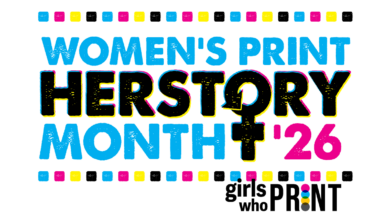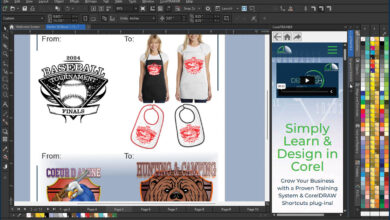Trade shows are back. In a post-pandemic world, businesspeople are returning to exhibition hall floors to obtain profitable insights only in-person exchanges can provide.
“People feel that the value proposition of a B2B exhibition is very high,” said Nancy Drapeau, VP of research at the Center for Exhibition Industry Research. “They see tremendous value and power in the ability to discuss new products with exhibitors, exchange ideas with colleagues, attend educational sessions, and keep pace with industry trends.” Unlike product catalogs on the internet, said Drapeau, trade shows let attendees touch and feel available merchandise while establishing vendor relationships that can put buyers in better negotiating positions.
Attending a trade show can be expensive, however, and not everyone gets the most bang from the buck invested in time and travel. It’s easy to fall into the habit of making committing common errors. Consultants advise avoiding the following common mistakes.
1. Ambiguous trade show goals
Don’t attend a show without setting specific goals. “Identify two or three things you really want to accomplish that will impact your bottom line,” said Meridith Elliott Powell, sales and leadership strategist based in Asheville, North Carolina. “If you succeed in doing those things, the conference will have been a success.”
In general, goals will fall into one of three categories: seeing new products and services, networking with peers, and attending seminars. Perhaps you want to find a better source for a certain category of product. Or maybe assess the quality of a new equipment line by requesting a demonstration. Is there a certain seminar about a topic of critical importance that you must attend? Finally, you may want to set a goal of meeting with specific colleagues to brainstorm solutions to an industry problem.
- Bonus tip: Not everyone can attend the show. Ask colleagues if they need you to track down some information.
2. Undeveloped strategies
Having specific goals is one thing. Pulling them off is another. Given the limited time available at a show, it’s wise to apportion your hours with goal completion in mind.
Very often reaching a goal means touching base effectively with a key exhibitor. “It’s too easy to aimlessly walk from one vendor to another and get sucked into conversations about products or services that take you off focus about what will really help your business,” said Powell. “Devote your time to those vendors who are most important to your specific goals.”
Make appointments with people who can help you reach your goals. Offer to speak with them in a quiet spot away from their booths. Maybe the show has a relaxation area with chairs and water. Or you might meet an important colleague at a nearby restaurant for lunch.
- Bonus tip: Schedule meetings with critical vendors early in the morning before the day gets hectic, when they won’t mind leaving their booths for a coffee and donut.
3. Undisciplined time management
You want to see the right vendors in a timely fashion, so you don’t run out of time before your essential work is done. And that requires careful planning. “Rather than wandering around aimlessly, approach the show floor strategically,” said Orvel Ray Wilson, a speaker and coach on trade shows. “Use a yellow highlighter or red Sharpie to circle the A hit list — those exhibitors you really need to see. Then connect the dots to their booths and prioritize the visits. After that, mark the locations of the B hit list, your second tier of vendors.”
Avoid getting hijacked by interesting displays irrelevant to your work, he adds. “Knowing who you’re going to skip is as important as who you’re going to see.”
And take some time off. Sure, you are a go-getter and are excited about the show’s possibilities. But pacing is important. “You need downtime,” said Powell. “If you spend four hours at seminars and four hours at the exhibitor hall and then go out to dinner with people, you’re going to be so exhausted none of it is going to take hold.”
- Bonus tip: If you miss someone you want to see at a booth, leave your business card with a note on when you will try again.
4. Ineffective booth conversations
To avoid wasting time when you enter an exhibition booth, control the conversation. To do so you need to know what you need to discuss in advance, and then steer the conversation immediately in that direction.
“Avoid open-ended questions such as ‘What’s new?’ that invite the exhibitor to ramble on, wasting your time,” said Peter LoCascio, a Salem, Oregon,-based consultant. “Try an opener like this: ‘My name is Jane Walter from the XYZ Company. I am making a business decision to buy a [product]. Why should I consider your model over the one from your competitor?’”
Another approach is to ask, “Who’s your best expert on [subject]?” Or “We’ve had problems with your customer service. Who here has the authority to fix that for me?”
Not every booth staffer is at the same level of product expertise. If there is no one available to answer your question, obtain the name and contact information for someone who can. Sometimes that will require making a phone call after the show is over. That can be a prudent step in any case. “Exhibitors often fail to follow up trade show leads in a timely fashion,” said LoCascio. Obtaining the name and number of a person in your territory can help you perform your own follow-up to learn more about a product or service.”
- Bonus tip: Ask yourself “What is the biggest problem I have in my business?” Ask exhibitors for solutions.
5. Unstructured note taking
Trade shows tend to create a state of information overload. “You are going to forget a lot of what you see,” said Chance Castellucio, Executive VP of Sales at PromoLeaf, a promotional products company. “There are so many presentations that things can get jumbled in your memory. One solution to the problem is to take pictures that capture the essential information in each booth, including the company name and the relevant product or service. These images will prove helpful later when you return home.”
It’s also wise to take careful notes regarding follow-ups. Whom did you talk to? What did they promise to do or send? Later you can monitor whether you received what they promised, or whether a phone call is appropriate.
- Bonus tip: Record important booth conversations on your phone, then have the recording transcribed back home.
6. Unproductive networking
Networking is vital to success. Many people though, fail to understand that it is a skill like any other. Trade show experts advise taking the time to practice in advance until you know exactly what you will do in a variety of common situations. Chance suggests rehearsing your approach in three areas: How you first address an individual, what you say during the ensuing conversation, and how you disengage gracefully to move down the aisle. Nailing this routine will give you the self-confidence to approach others quickly, easily and productively.
- Bonus tip: Set specific follow-up times with vendors and colleagues who are especially important to your business. Let them know you will call them at a certain time.
7. Haphazard seminar selections
Seminars can be essential components of a successful trade show event. Attending too many, or going to ones that are less important, can waste valuable time that could be spent interacting with vendors and colleagues.
“Sit down ahead of time and ask, ‘Which seminars relate to the three goals I have established for this show?’” said Powell. Rather than attend a questionable presentation, check to see whether it will be recorded for later viewing on social media or a website.
- Bonus tip: Introduce yourself to seminar speakers after their presentations, thanking them and exchanging business cards. Such contacts can be valuable later when you have questions only they can answer.
Follow the tips from these experts and you will have a much greater chance of making a trade show pay off. Mental preparation is key. “Too often we let trade shows happen to us, rather than plotting out how we are going to get the best return from them,” said Powell. “Trade shows are important tools for advancing an organization, but it takes a good strategy to make it all happen. Set a goal, make a plan, return home, and implement.”




